Unveiling the Top 20 Smells Cats Hate: Essential Knowledge for Cat Lovers

Sharing is Caring!
Introduction
As cat lovers, we know that our feline friends have a keen sense of smell. From sniffing out treats to exploring their surroundings, their noses play a vital role in their daily lives. But did you know that there are certain smells cats absolutely hate? Understanding these smells can be essential knowledge for any cat owner, helping to create a more harmonious living environment for both humans and their feline companions.
In this article, we’ll unveil the top 20 smells cats hate, shedding light on scents that can make our furry friends wrinkle their noses and turn away. So, if you’re curious about what odors to avoid or how to keep certain areas cat-free, read on to discover the intriguing world of smells cats do not like.
Understanding a Cat’s Sense of Smell
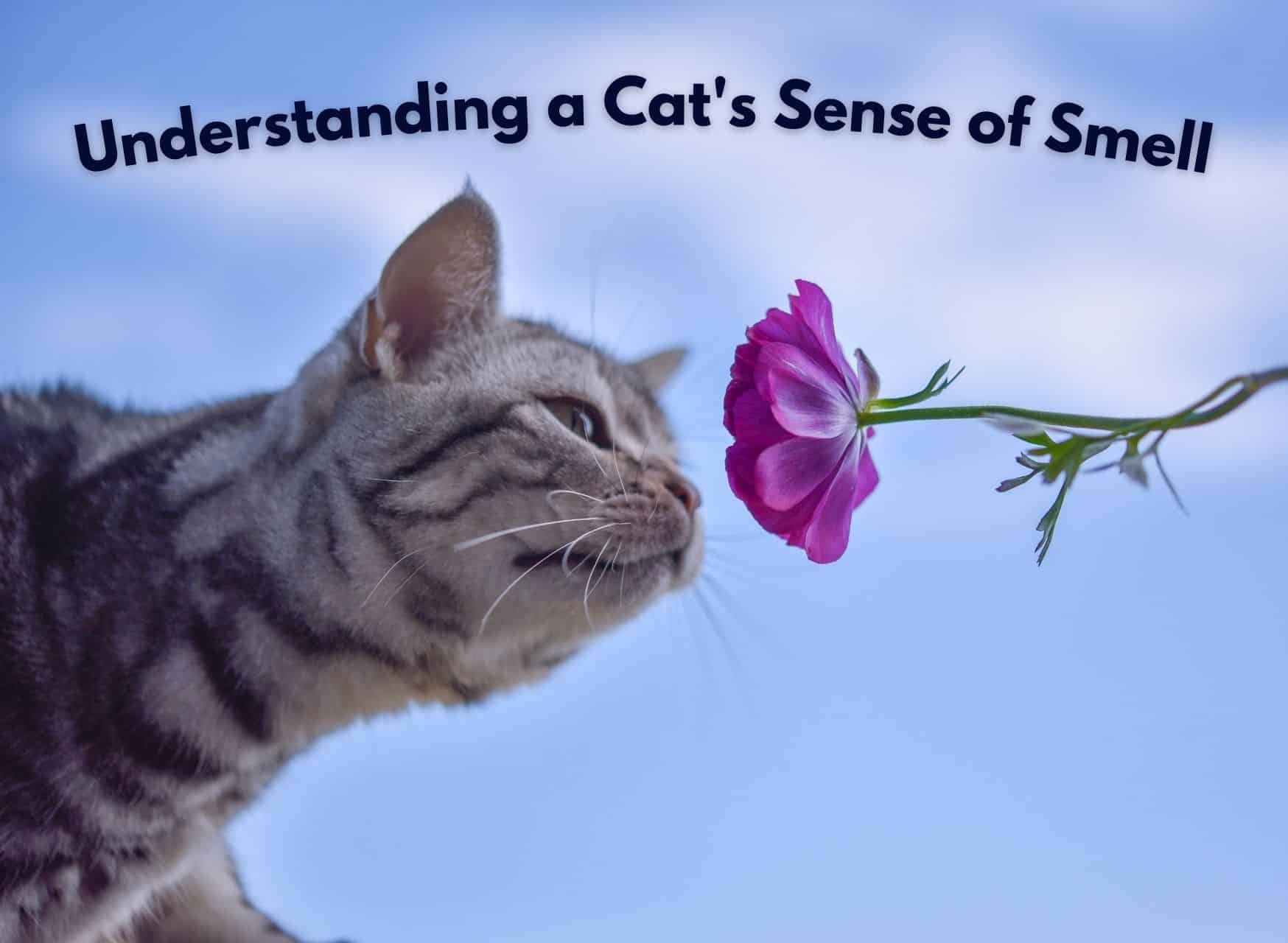
A cat’s sense of smell plays a vital role in their daily life, and it’s important for cat lovers to understand its significance. Cats have an incredibly advanced olfactory system, surpassing that of humans. Their keen sense of smell helps them navigate and interpret the world around them, serving as a primary means of communication and aiding in their survival and well-being. By understanding what smells cats dislike, such as citrus, certain flowers, or specific herbs, cat lovers can create a comfortable and stress-free environment for their feline companions.
Cats rely on their sense of smell for various purposes, including communication and identifying potential dangers. They possess a specialized organ called the vomeronasal organ, located on the roof of their mouth, which allows them to detect and process pheromones. Through scent marking and sniffing, cats can communicate with other cats, establish territories, and convey information about their emotional state. Their sense of smell also helps them locate food sources and navigate their surroundings.
The Impact of Smells on Cats
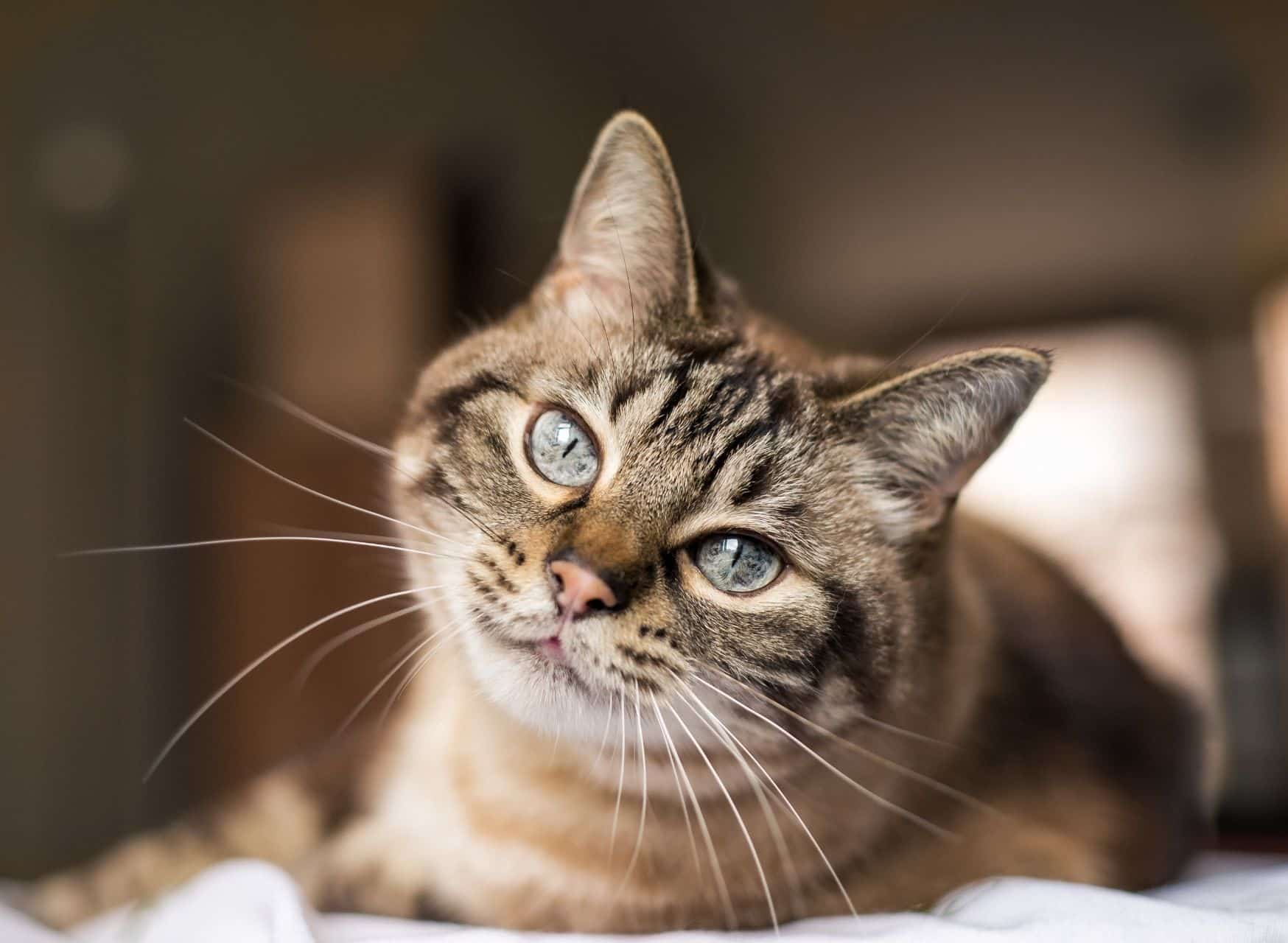
- Certain Smells and Cat Behavior:
Scents play a significant role in influencing a cat’s behavior and overall well-being. Just as certain smells can evoke strong emotions or reactions in humans, cats also have specific preferences and aversions to different scents. Understanding which smells cats hate or find unpleasant is crucial for cat owners to provide a harmonious environment for their feline companions. Exposure to scents that cats dislike can trigger stress, anxiety, or even physical discomfort in cats, leading to behavioral issues and a decline in their overall well-being
- Awareness of Smells Cats Hate:
Being aware of the smells that cats hate is essential for cat owners. Cats heavily rely on their sense of smell to navigate their surroundings and communicate. Disliked smells can disrupt their sense of security, leading to unwanted behaviors like scratching furniture or inappropriate elimination. By understanding these scents, cat owners can avoid using or exposing cats to them, promoting a happier and healthier living environment.
- Benefits of Avoiding Unpleasant Smells in a Cat-Friendly Environment:
Creating a cat-friendly environment involves considering smells that cats hate. To keep cats out of the garden, avoiding odors they dislike is effective. Cats generally dislike strong-smelling substances like citrus, certain flowers, or specific herbs. By avoiding these scents, cat owners can deter their pets from damaging the garden. Instead, incorporating appealing scents like catnip or valerian can attract cats to designated play areas or scratching posts.
Unveiling the Top 20 Smells Cats Hate
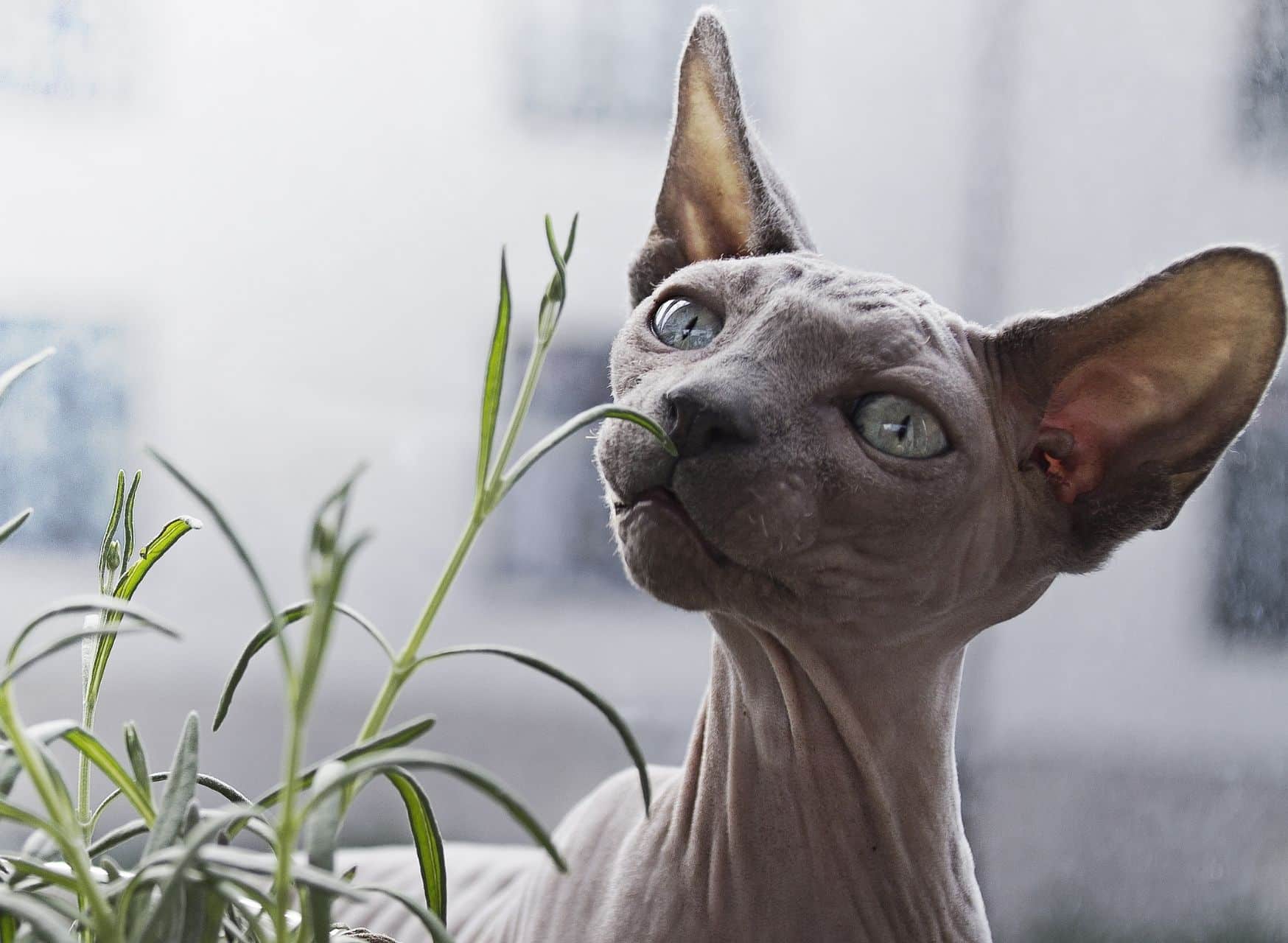
Cats have highly developed senses, including a keen sense of smell. While some scents may be pleasant to us, they can be repulsive to our feline friends. If you’re a cat lover or owner looking to create a cat-friendly environment, it’s essential to know which smells cats dislike. So, what is a smell that cats hate? Let’s find out!
1. Citrus
Cats have a strong aversion to citrus scents, which are known to be at the top of the list of smells that cats hate. While humans find the fresh and invigorating aroma of citrus fruits and products pleasant, cats perceive these scents as overpoweringly pungent due to their highly sensitive sense of smell. The intense citrus odor can be overwhelming and unpleasant for cats, leading them to avoid areas or objects associated with these scents. It’s important to note that citrus essential oils can be toxic to cats, so they should be kept out of reach and never used directly on or around feline companions.
2. Lavender
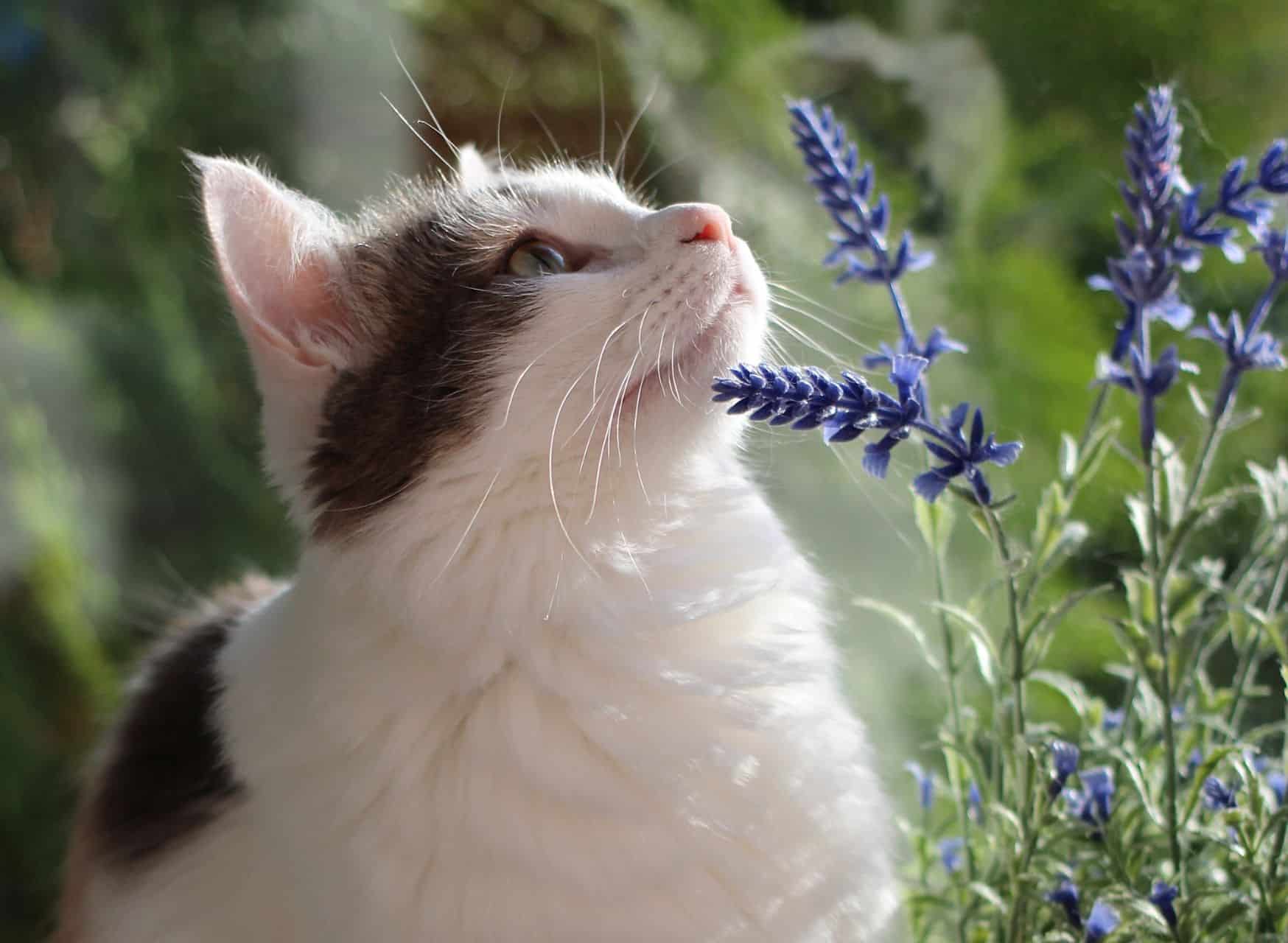
Cats have a strong aversion to the intense floral scent of lavender, despite its pleasantness to humans. The overpowering aroma can be overwhelming to their sensitive noses, causing discomfort. This aversion can be traced back to their wild instincts, as lavender can be toxic if ingested or directly contacted by cats, leading to potential skin irritation or gastrointestinal issues. Cat owners should be mindful of using lavender-scented products and ensure they are kept out of their cat’s reach to prevent any discomfort or health risks.
3. Mint
The intense smell of mint leaves, mint oil, or mint-associated products can overload their sensitive sense of smell, causing discomfort and repulsion. Cats have a complicated relationship with mint odors due to their highly sensitive olfactory system, similar to humans being overwhelmed by a room full of heavily perfumed individuals. To create a comfortable and stress-free environment for cats, it’s advisable to minimize the use of minty fragrances in the home, including household fresheners, cleaning agents, and personal care products.
4. Eucalyptus
Eucalyptus is a scent that cats strongly dislike, especially eucalyptus oil. The powerful aroma of eucalyptus can overwhelm cats due to their highly sensitive sense of smell, causing them discomfort. Moreover, certain compounds present in eucalyptus and other strong-smelling plants can be irritating or toxic to cats if ingested or applied on their skin. So, when considering what scents cats hate, eucalyptus is one to be mindful of.
5. Cinnamon
Cinnamon, with its sweet and spicy fragrance, is a scent that cats despise. The strong presence of cinnamaldehyde, the chemical compound responsible for cinnamon’s distinct smell, triggers a strong aversion in our feline friends.
6. Vinegar
Now, dipping into the culinary realm of scents that cats dislike, we can’t ignore vinegar. Vinegar has a potent and pungent scent. When our noses pick up the strong smell of vinegar, it can be overwhelming, but for them, this smell is multiplied several times over. So, When utilizing vinegar, always ensure to dilute it appropriately and never use it in an enclosed space where the cat cannot escape.
7. Garlic
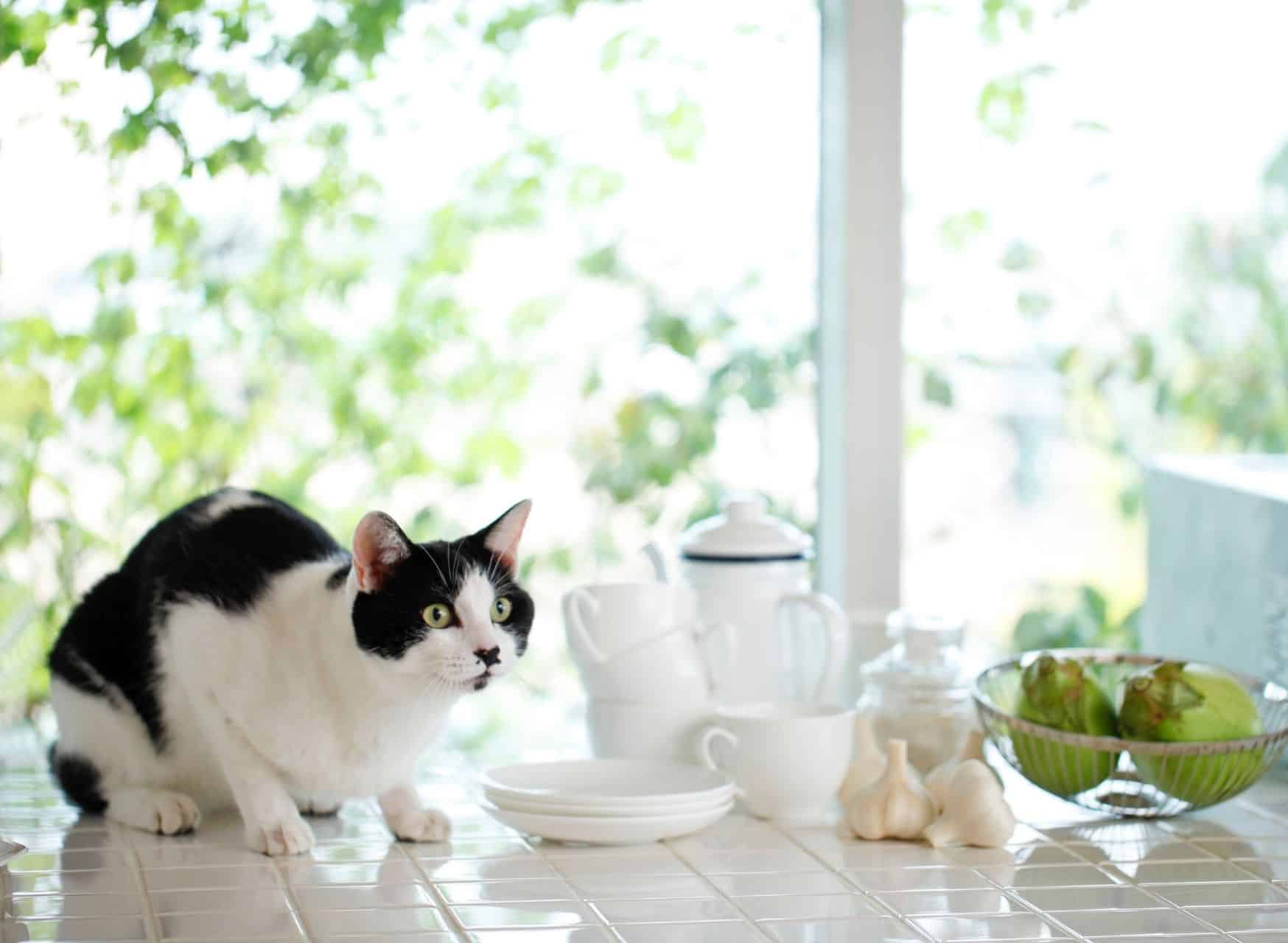
Many of us savor the delicious aroma of garlic as it sizzles in the skillet. But did you know that this beloved cooking ingredient is one of the smells cats hate? Cats possess about two hundred million odor sensors in their noses. In comparison to our humble five million, it’s easy to see why what may come across as a pleasant scent to us could be overwhelmingly intense for cats. Garlic and other plants in the Allium family, contain a chemical that can cause damage to cats’ red blood cells, leading to anemia. Therefore, it’s incredibly important to ensure that your cat isn’t consuming any foods containing garlic.
8. Onion
Believe it or not, onions are another item on the list of ‘what smells do cats dislike’. When you chop an onion, it releases a sulfur compound that most cats find uninviting. For them, the smell of an onion is nothing short of repulsive. Hence, it’s safe to call this a potent cat hate smell. This is actually beneficial knowledge as onions, along with garlic, are toxic to cats. Thus, it seems nature has given cats an aversion to smells that can potentially harm them.
9. Pine
The strong, resiny scent of pine can cause quite some discomfort for our feline friends. If you’ve ever wondered which smell cats hate, pine would definitely feature on that list. This might come as a surprise to many cat parents who use pine-based cat litter. Unbeknownst to them, their kitties might be waging a silent war against the strong scent every time they visit the litter box! The sharp, sappy smell of pine can overwhelm a cat’s delicate sense of smell, possibly causing them irritation, discomfort, or even headaches.
10. Rosemary
If you’re a fan of a beautifully scented herb garden, chances are rosemary is part of your collection but is not high on our feline friends’ favorites list. The reason? It’s the concentrated, pine-like smell. But let’s delve a bit deeper into why this particular scent is a big deal to cats.
First of all, cats have a sense of smell that is up to fourteen times stronger than ours. This means that what may be a delicious, aromatic scent to us, can be overpowering and unpleasant for our pets. The strong, earthy smell of rosemary, while invocation of a Mediterranean breeze for you, is likely to make your cat wrinkle its nose. However, some other herbs are not only safe but can even be enjoyed by cats, such as mint or catnip.
11. Peppermint
Peppermint, while refreshing for humans, falls squarely on the list of smells cats do not like. Much like mint, the pungent and strong smell of peppermint is off-putting for your cat’s delicate nose. So, why do cats hate the smell of Peppermint? Their detest for peppermint aroma comes from a compound called menthol, present in both mint and peppermint. Menthol can be significantly overwhelming for cats, causing them a degree of discomfort. It’s similar to how we might react to an overly strong perfume – it’s too overbearing and can lead to headaches and nausea.
12. Coffee
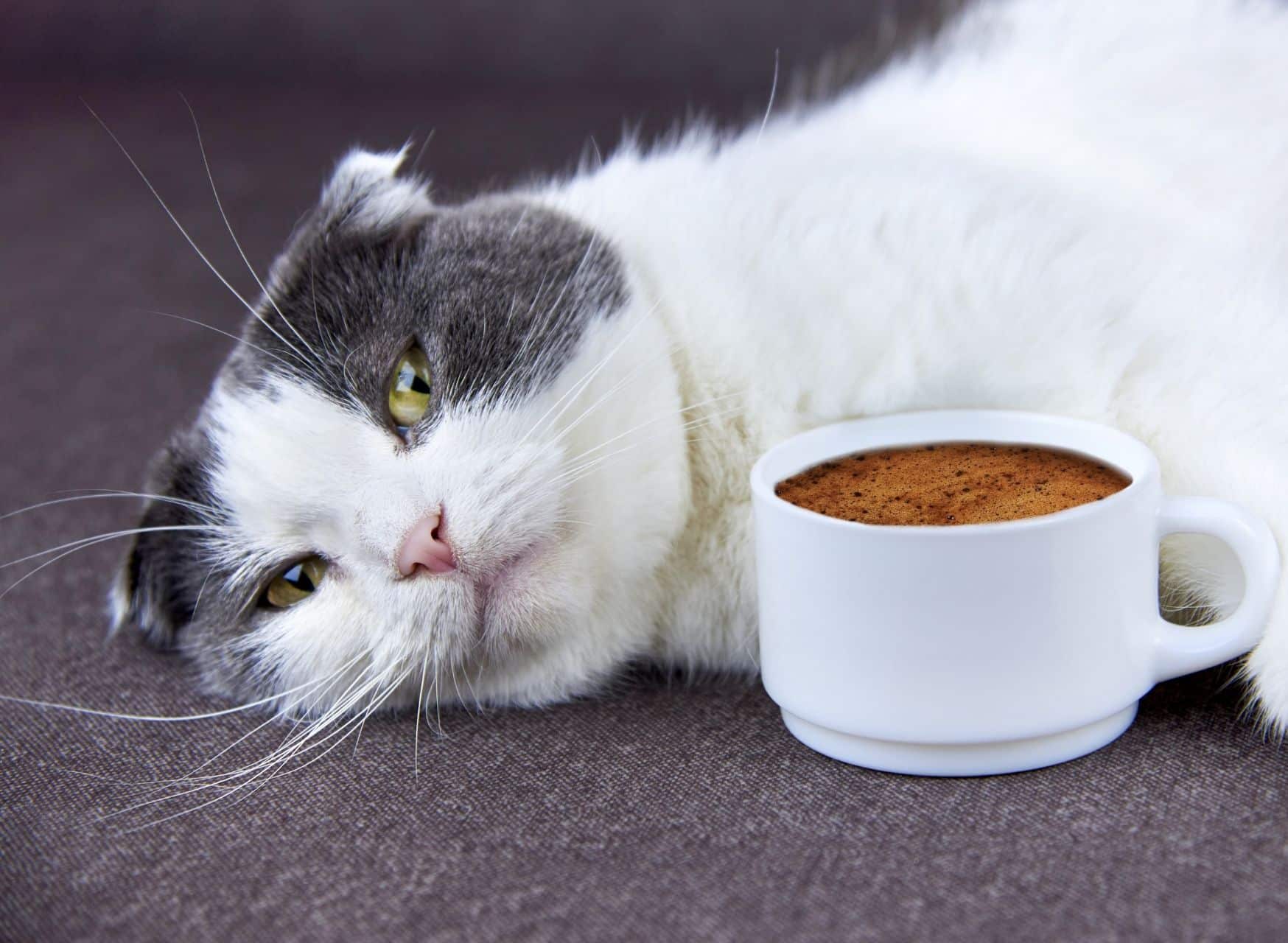
Ah, coffee! You may love its invigorating aroma as it fills your home every morning and kickstarts your day. But it’s interesting to note that what you find comforting may be among the top smells cats hate. “But why?”, you might wonder.
The caffeine in coffee is not only repulsive for a cat’s nose but also toxic to their system. To put it simply, the strong aroma of freshly brewed coffee is overpowering for our feline friends. Coffee residue, either from your coffee pot or coffee grounds, can be highly irritating to cats if ingested or inhaled. And let’s not forget the high acid levels in coffee beans that add even more punch to a smell that cats already find unpleasant.
13. Basil
You might be surprised to learn that the same culinary herb sitting in your kitchen windowsill is one of the scents that cats hate. What a heartbreaker! Even though you may be a fan of the fragrant, sweet aroma that basil leaves give off, your beloved feline friend is less enthused. Cats despise the smell of basil because of its intense aroma. Their superior sense of smell makes this otherwise pleasant scent to us, overpowering and unbearable to them.
14. Thyme
Let’s delve into a rather unexpected entry on this list what smells cats dislike – thyme. This common household herb is often integrated into our culinary endeavors. While we humans find its aroma delightful and comforting, our feline friends think otherwise.
The chemical components that make up the aroma of thyme are surprisingly offensive to cats. This is due to cetone thujone, an organic compound found in the oil of the thyme plant, which cats find exceptionally off-putting. Ingesting thyme can be toxic to cats, leading to digestive upset. When it comes to thyme essential oil, excessive exposure can cause cats to experience reactions like drooling, vomiting, weakness, and even calling to mind symptoms of drunkenness. So, keep your thyme plants, dried thyme, and thyme essential oil well out of your cat’s reach.
15. Wintergreen
Unlike humans who usually find the ‘cool’ feel and the crisp aroma of Wintergreen refreshing, cats think otherwise. This smell is truly on the list of “what do cats hate to smell“.
The scent of Wintergreen, generally recognized in oils and plant variations, is potent and overpowering to a cat’s superb sense of smell. If you’ve got a penchant for human products containing Wintergreen such as air fresheners or sweets, you may want to dispose of them discreetly, preferably somewhere your feline can’t find and sniff it out. Its strong scent can cause your pet stress, confusion, and discomfort, leading to potential behavioral changes.
16. Tea Tree Oil
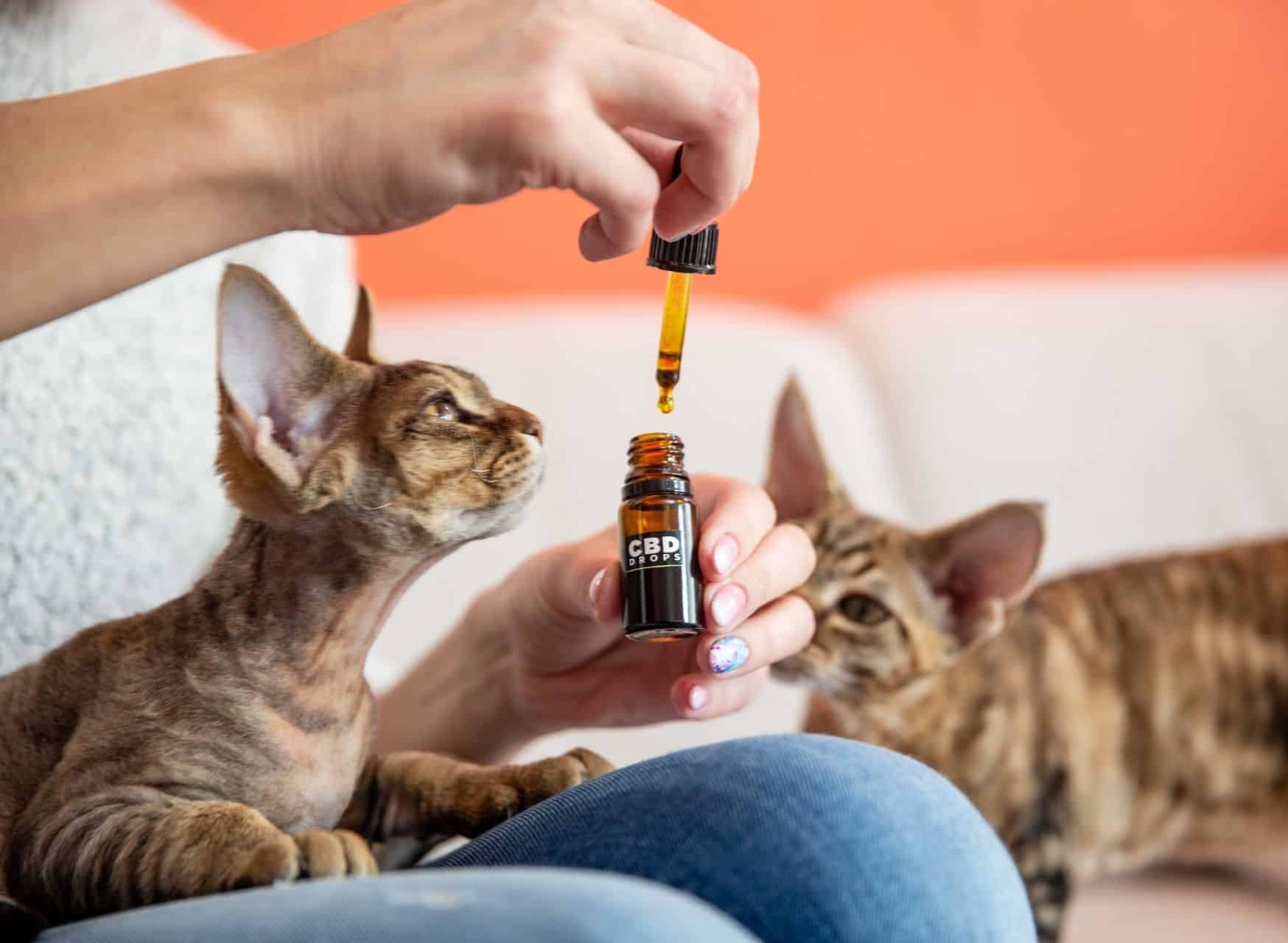
Turning our attention toward essential oils, tea tree oil, commonly touted for its antiseptic properties, ranks prominently among the smells that cats dislike. Interestingly, the strong disdain cats have for tea tree oil can be attributed to certain phenolic compounds. These compounds, terpinolene, pinene, and cineol, are potent and can be quite disturbing to the feline olfactory system. Therefore, using tea tree oil-based products around your cat can cause discomfort and even contribute to health issues such as nausea, vomiting, and, in severe cases, nervous system issues.
A tip worth remembering: When it comes to using essential oils around cats, it’s important to exercise caution and prioritize their safety. While some essential oils can be toxic to cats, there are also essential oils that are considered safe for feline companions including chamomile, and frankincense, among others. These oils can be used in diluted form or in products specifically formulated for cats.
17. Marigold
With its radiant hues and aromatic aura, the marigold blossom is a sight to behold and a favorite among garden enthusiasts. However, what may surprise you is that this appealing bloom tops the list of what scents cats dislike.
Why do cats dislike the marigold scent? Scientists haven’t solidified a specific reason yet. However, they speculate that toxic compounds present in marigolds, like thujone and alpha-terthienyl, could be offensive to our furry friends. These components can be particularly potent if ingested, potentially causing a mild irritative response.
18. Rue
Coming in at number 18, we have another herb that is known to be quite unpalatable to our feline friends: Rue. This herb is often used in gardening for its insect-repelling properties, but it’s also on the list of smells cats dislike.
Scientifically known as Ruta Graveolens, this plant gives off a strong and somewhat bitter aroma. While it might be something that we don’t mind, it can be off-putting for cats. The smell of Rue is very sharp and penetrating, similar to the scent of mothballs. It has a spicy, yet sweet odor that is hard to describe. However, what is easy to describe is a cat’s reaction to it. Your cats are likely to turn up their little noses and high-tail it out of there faster than you can blink.
19. Lemongrass
Lemongrass is often used in aromatherapy for its invigorating and anti-stress properties. However, to our furry friends, this is one of those scents that cats hate. They find it overpowering and irritating. Like mint and citrus, lemongrass contains compounds that are too pungent and intense for a cat’s delicate sense of smell.
The strong smell, somewhat reminiscent of lemon, tends to repel cats immediately. A whiff of this plant can make them twitch their noses and back away. Therefore, if you’re a fan of lemongrass, best to keep it out of your cat’s reach, especially if it’s essential oil, which is much more concentrated and could potentially harm your feline friend if ingested or applied topically.
20. Camphor
Our list of smells cats hate concludes with camphor, an often-overlooked scent in homes. Most of us can tolerate it or even find it soothing, but for our feline friends, it’s a different story altogether.
While it has a refreshing, clean aroma to us, cats find the smell of camphor absolutely nay-inducing. A cat’s dislike for this scent may be attributed to their highly developed olfactory system, which is more tuned to detecting natural scents, whereas camphor is perceived to be more synthetic in nature.
And there you have it – the top 20 smells that are a big no-no for your kitties. Armed with this knowledge, you can now create a more comfortable and harmonious living environment for your cats, free from the scents that cats hate.
Tips for Cat Lovers and Owners
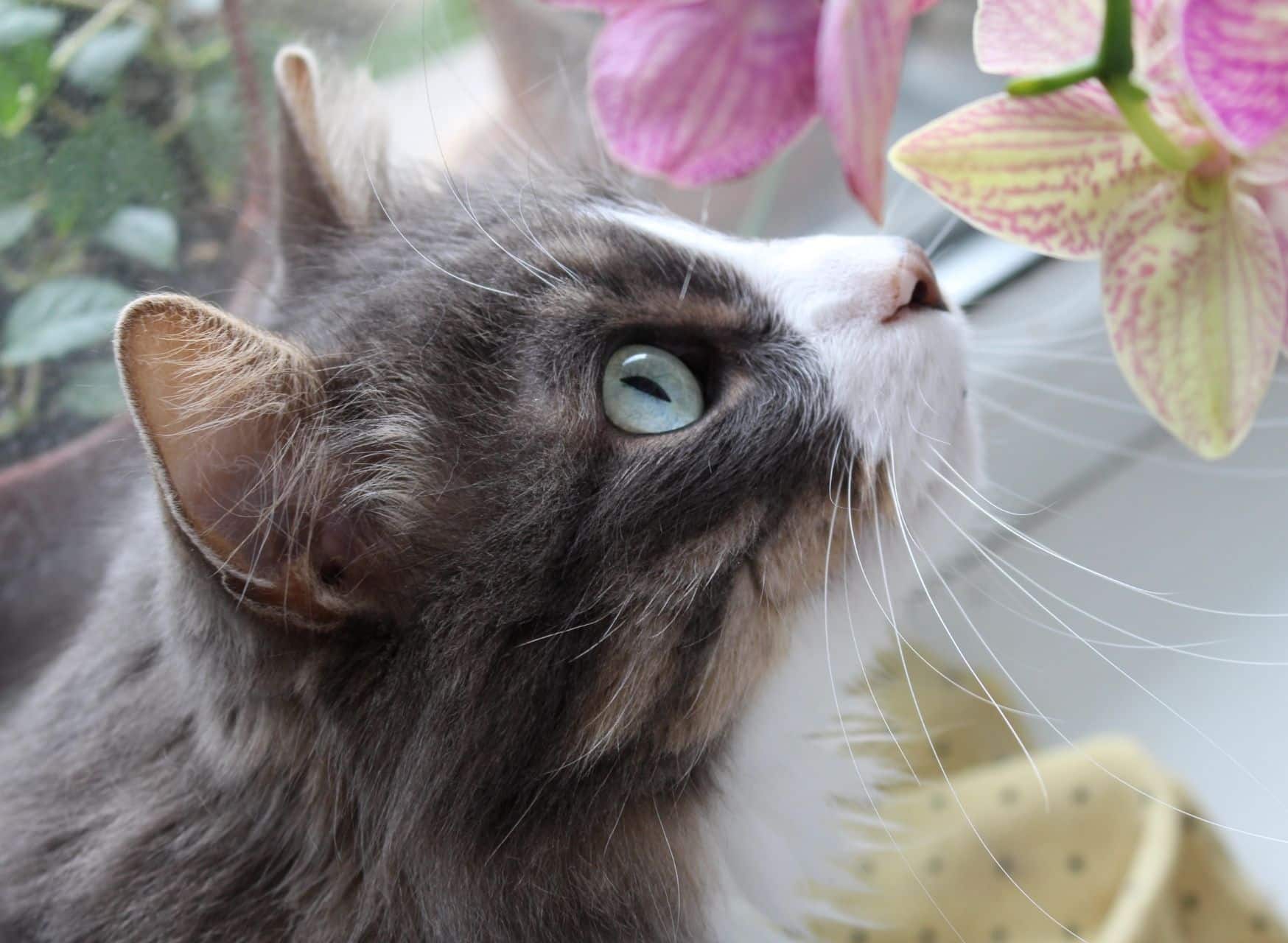
Armed with this newfound knowledge, what can cat lovers like us do to make our feline companions’ lives more comfortable? Here are some tips:
- Remove offensive scents: Now that you know ‘what scents do cats hate?’, start by eliminating these items from your home or at least keep them out of your cat’s reach.
- Be mindful of essential oils: Many essential oils fall under the banner of “What do smells cats dislike?”. Use these sparingly and keep your cat’s area free of such smells. Even diffusers can disperse smells cats hate throughout the house, so beware!
- Green thumb caution: Many a cat hate smell can be found in your garden, where herbs like rue, basil, and thyme grow. Ensure your cat’s outdoor roamings are restricted from these plants to prevent olfactory offense.
- Safe Alternatives: With the list of smells that cats hate in mind, research on safe alternatives that cats will enjoy. This aids in creating a truly cat-friendly environment. In summary, pay close attention to what smells your cat seems to hate and make concerted efforts to limit their exposure to such scents. Always keep your vet’s number handy and have open conversations about these scents and how they can impact your feline friend.
Conclusion
So there you have it – the top 20 smells cats hate. By understanding ‘what scents do cats hate‘, we can create better and safer environments for our feline friends. Never forget that while some of these scents are pleasant to us humans, they can cause distress, and discomfort, and even be harmful to our fur babies.
The fascinating world of cats and their unique sense of smell should serve as a guide in maintaining a loving relationship with your adorable creature. Use this newfound knowledge to show empathy for your feline friend, and if necessary, modify your scent-filled spaces to keep them comfortable and happy.
Remember, it’s also important to note that not all cat breeds are the same. Some may react differently to certain smells than others. Always keep an eye on your cat’s behavior and monitor their reactions to different scents. If you’re unsure, always consult your vet or a cat behaviorist. Now that you’ve discovered the wide array of smells that cats hate, prove your unconditional love for your furry companion by acknowledging and respecting their preferences. Not only will this strengthen your bond, but it will also make your pet feel more at home.
Sharing is Caring!
About The Author
PawCool Team
Related Categories: Cats | Cat Health & Care | Cat Stories
Latest Articles

Never Miss A Thing!
All pet stories & guides you care about








